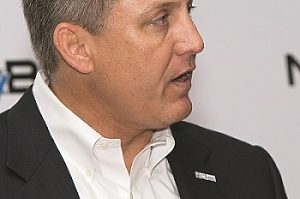Whether it’s technical minutiae surrounding the U.S. RDS standard or the impact of algorithms on hybrid IBOC transmissions, the National Radio Systems Committee is continuing to tackle some of the most intricate standards issues facing the radio industry.
While the full NRSC committee next meets in spring, the organization’s three active subcommittees — which focus on details of AM and FM analog broadcasting, radio data system communications protocol and digital radio broadcasting — will be busy with a slew of updates and announcements when they meet at the fall Radio Show in Atlanta.
In a series of lectures and meetings, the subcommittees will answer queries and share insights on technical issues affecting the industry.
An image from the report NRSC-R208: “Characteristics of Location-based Services Transmissions Using Local Radio,” published in January.
Click To Enlarge “The NRSC periodically evaluates all of its standards and updates as necessary, in addition to evaluating the need for any new standards as circumstances may dictate,” said Milford K. Smith, NRSC chairman and the director of engineering for Greater Media Inc.

The AM & FM Analog Broadcasting subcommittee and its Modulation-Dependent Carrier Level Working Group will be reporting on its investigation of hybrid IBOC transmission with use of modulation dependent carrier level algorithms at AM stations.
The question at hand is whether hybrid IBOC transmissions are in any way affected by use of any of several popular versions of MDCL, Smith said. “The NRSC, with the support of its sponsors NAB and CEA, are performing laboratory testing to provide answers, and the groups are making good progress in their work.” Gary Kline and Stan Salek are the AFAB chairs.
Likewise, the RBDS subcommittee, through its RDS Usage Working Group, will showcase the work it has put in over the last year on NRSC-G300-B, the U.S. RDS standard. The subcommittee will update attendees on the next version of the standard, known as G300-C.
“We’re focused on continuing development of the NRSC-G300 guideline document highlighting RDS usage and best practices,” said Alan Jurison, chair of the RDS subcommittee. This is not a standards document, he said. “It’s much more about explaining important usage points so that the broadcaster gets the best performance and result from RDS.”
The subcommittee is evaluating new additions for a future revision of the G300-B document, released in September 2014; the group is also focused on expanding emergency alerts via RDS. It will share information about the NPR Labs emergency alerting system, as well as discuss new use cases, such as the Global Security Systems’ Alert FM platform and how that message portal can be used to transmit earthquake alerts via RDS.
Further, the group is working on improved program identification code assignments for translators, “an increasingly important issue with the rapid growth of the translator universe,” Smith said. The group is also anticipating future additional work on the NRSC-G301 metadata standard.
Keeping tabs on the work going on across the pond, the RDS subcommittee is interfacing regularly with the European RDS forum as it looks at the possible “next generation” of RDS, called RDS 2.0, which will provide a significantly higher data throughput, Smith said. The NRSC, via NAB Senior Director of Advanced Engineering David Layer, was in attendance at the latest meeting of the European forum and is closely following its work, as Radio World has reported. Dan Mansergh is chair of the RBDS subcommittee.
Likewise, the DRB subcommittee — via the IBOC Standards Development Working Group — will offer a report on a proposal advanced by Nautel for measuring AM IBOC transmission quality using modulation error ratio. The DRB subcommittee plans to report on the findings that surround this quality metric. Glynn Walden and Jackson Wang are DRB chairs.
The NRSC subcommittee meeting will dovetail with technical aspects of the convention, with sessions like “NAB Labs’ Focus on Radio,” which will touch on AM all-digital testing, and MDCL and HD Radio compatibility.
“The most important thing to know is that anyone with an interest in our work is free to attend our meetings and, ideally, get involved with the NRSC’s work,” Smith said. The NRSC welcomes new members and new ideas — with no travel required, Smith added.
“Most of the task and working group meetings, which are where the bulk of the real work is accomplished, are held via teleconference.”







